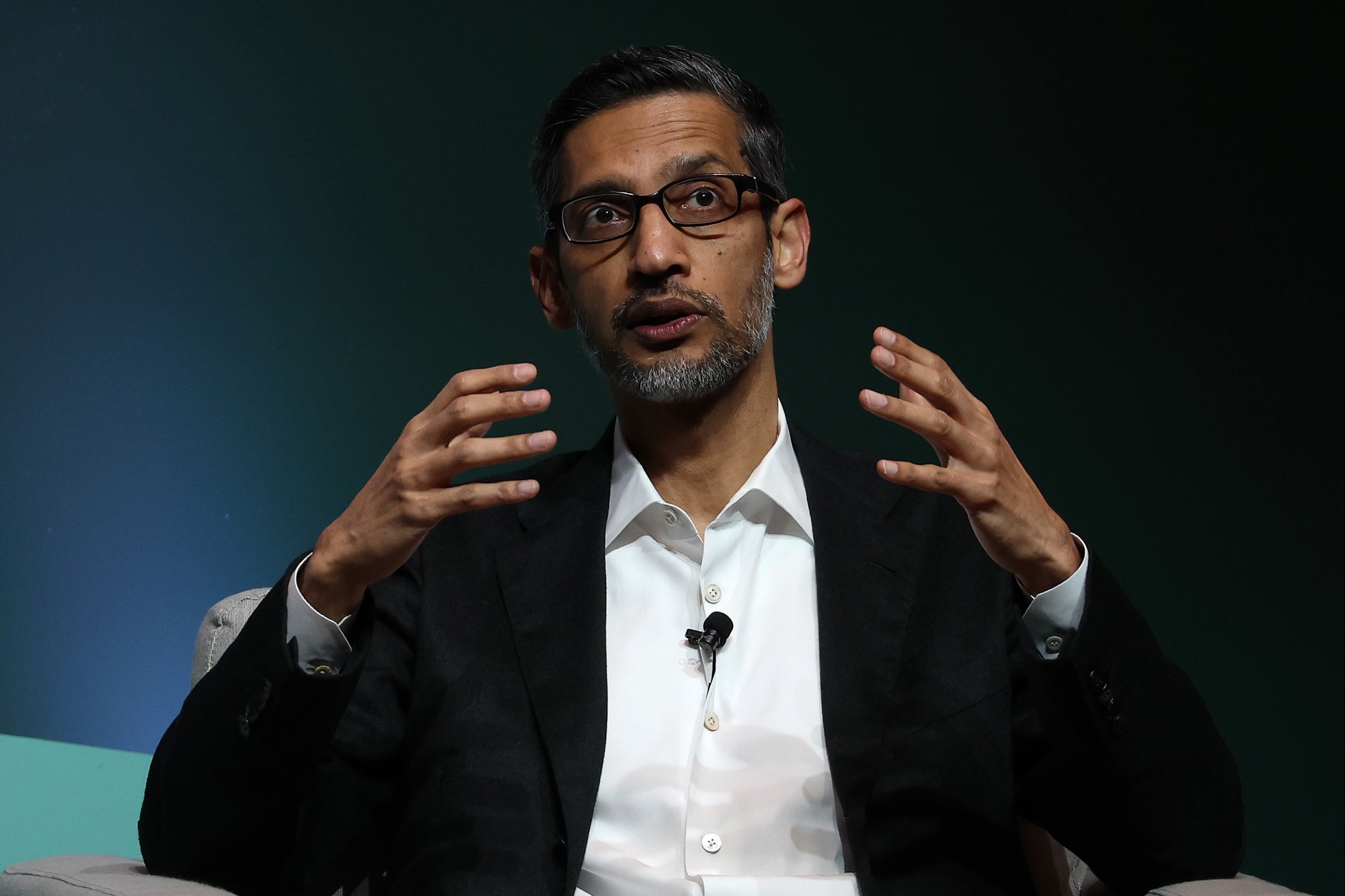AFFILIATE MARKETING
Google Sues Developers Over Fake Crypto Investment Apps

More than 100,000 people bought into an international cryptocurrency scam, lured to ‘invest’ by YouTube videos, affiliate marketing campaigns, and romance scam messages, Google alleged in a complaint filed on Thursday in a New York district court.
Google brought the lawsuit against two developers who allegedly created 87 fraudulent crypto apps over the course of at least 5 years on the Google Play store.
Google accused the developers of targeting thousands of victim “investors,” who weren’t really investing in crypto at all, instead putting money directly into the developers’ pockets.
The victims lost anywhere from $100 to tens of thousands of dollars each, as per the complaint.
Google CEO Sundar Pichai. Photo credit: Justin Sullivan/Getty Images
The developers used a few tactics to get victims to download their apps, according to the complaint — one was sending text messages to potential victims that were meant to appear as though they were sent to the wrong number.
The victim would get a text like “I miss you all the time, how are your parents Mike?” and if they responded, even with a “wrong number,” the developers or people working on their behalf would try to strike up a friendship or romantic relationship to get the victim to download one of their crypto apps and deposit money.
Related: Google Agrees to Delete User Private Browsing History as Part of a Lawsuit Settlement
The trouble would start when the victim tried to withdraw their funds. The platform wouldn’t allow them to access their money and the “friend” who told them about the app would stop responding to messages.
The customer service lines wouldn’t work, or when they did, the company representative would ask for additional withdrawal fees ranging from 10% to 30%, saying that these fees were needed for commissions or taxes.
Even if the victim paid the additional fees, they would still not receive the funds they initially deposited, according to the complaint.
Google named TionRT, Starlight, and SkypeWallet as a few examples of fraudulent apps in the complaint. The company is asking the court to award it an unspecified amount in damages and block the defendants from accessing any Google services.
Related: Google Sues Hackers For Making Fake Advertisements to Download Bard AI Technology
The app developers or their agents also created YouTube videos designed to legitimize their crypto apps, even paying actors to pose as the “leadership teams” behind the apps.
They also launched affiliate marketing campaigns, promising users that they would earn commissions by signing up other users for the apps, and released public press releases
When Google took the apps that the developers created off of its app store in response to customer complaints, the developers faked their identities and started over again, Google alleged.
Related: If You Used Google Anytime Between 2006 and 2013, the Company May Owe You Money
“Defendants made multiple misrepresentations to Google in order to upload their fraudulent apps to Google Play, including but not limited to, misrepresentations about their identity, location, and the type and nature of the application being uploaded,” Google’s complaint reads.

![How AEO Will Impact Your Business's Google Visibility in 2026 Why Your Small Business’s Google Visibility in 2026 Depends on AEO [Webinar]](https://articles.entireweb.com/wp-content/uploads/2026/01/How-AEO-Will-Impact-Your-Businesss-Google-Visibility-in-2026-400x240.png)
![How AEO Will Impact Your Business's Google Visibility in 2026 Why Your Small Business’s Google Visibility in 2026 Depends on AEO [Webinar]](https://articles.entireweb.com/wp-content/uploads/2026/01/How-AEO-Will-Impact-Your-Businesss-Google-Visibility-in-2026-80x80.png)














